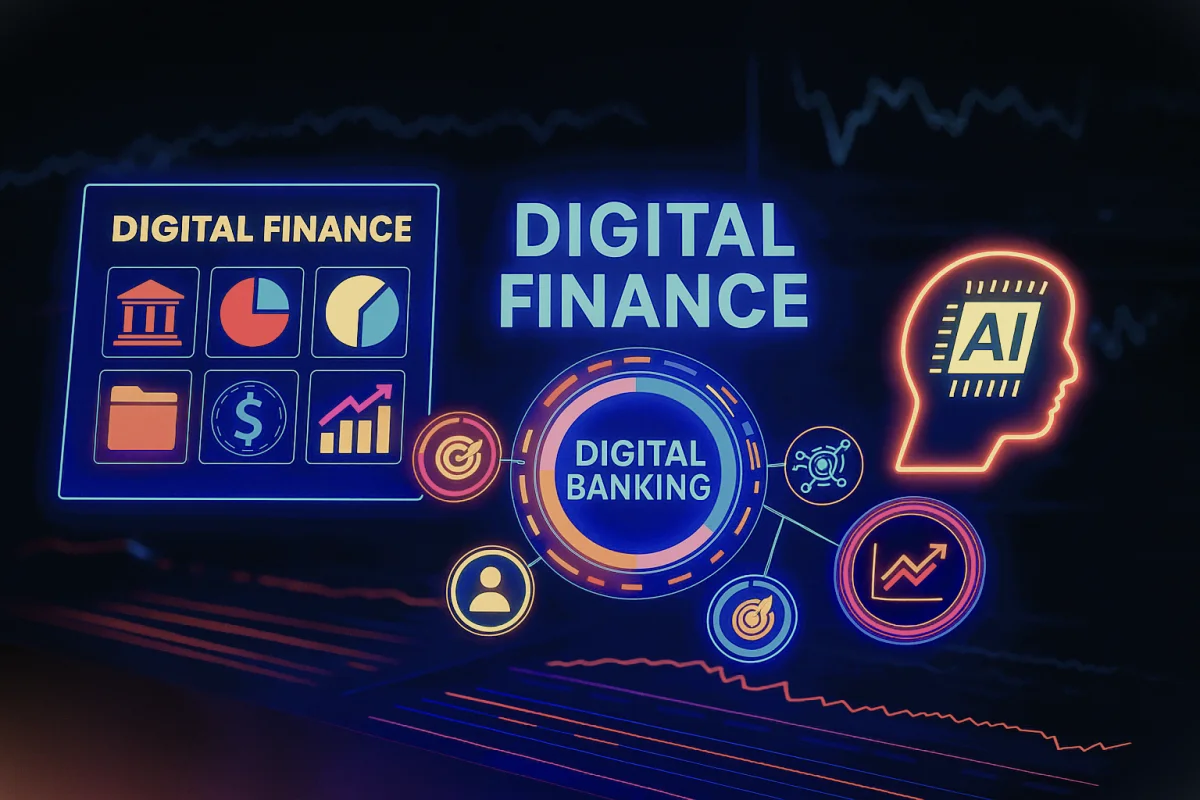The Future of Finance: FinTech, AI Analytics, and Digital Banks
The financial industry has undergone a massive transformation over the last decade. Traditional banks, where customers relied solely on physical branches for services, are gradually being replaced by digital platforms, artificial intelligence analytics, and innovative FinTech solutions. These changes not only bring convenience but also create new opportunities for both businesses and consumers.

FinTech — The Engine of Financial Innovation
FinTech (financial technologies) is now one of the most dynamic sectors. Mobile payments, P2P lending, digital wallets, and crypto exchanges give customers the freedom to perform financial operations quickly and easily. Apps such as PayPal, Revolut, and Cash App have become part of daily life, redefining the way we interact with money.
FinTech companies respond rapidly to consumer demands and are often more flexible than traditional banks. As a result, their popularity is growing quickly, especially among younger generations.
AI Analytics — The Power of Data
Artificial intelligence analytics is rewriting the rules of the financial sector. Banks and FinTech companies use AI to analyze customer behavior, reduce risks, and create personalized offers. For instance, AI algorithms can predict loan repayment likelihood, verify the security of transactions, and deliver tailored financial recommendations to users.
AI also plays a vital role in fraud prevention. Machine learning models can efficiently detect suspicious activity, protecting customers from financial losses.
Digital Banks — The Standard of the Future
Digital banks, also known as neo-banks, operate entirely in virtual space. They do not have physical branches but still offer all the services of traditional banks. Popular examples include N26, Monzo, and Chime. Their main advantages are low fees, user-friendly apps, and fast services.
Digital banks are especially attractive for globally mobile customers who need simple and flexible tools for managing money across currencies and countries.
Advantages
- Speed and efficiency — Transfers and operations are completed within seconds.
- Security — AI algorithms reduce the risk of fraud.
- Accessibility — Banking is available 24/7 from any device.
- Personalization — Services are tailored to customer needs.
Challenges
Despite progress, challenges remain. Cybersecurity continues to be a major concern. Data breaches or hacking attempts can pose serious threats. Regulation is another pressing issue: many countries are still searching for ways to manage FinTech and digital banks without limiting innovation.
Conclusion
The future of finance is clearly linked to FinTech, AI analytics, and digital banking. These trends show that the traditional financial system is evolving into a more flexible, faster, and customer-centered environment. 👉 Do you think FinTech and digital banks will eventually replace traditional banks altogether?
✍ Article Author
- Registered: 26 July 2025, 15:34




 Silent Cat 🐾
Silent Cat 🐾